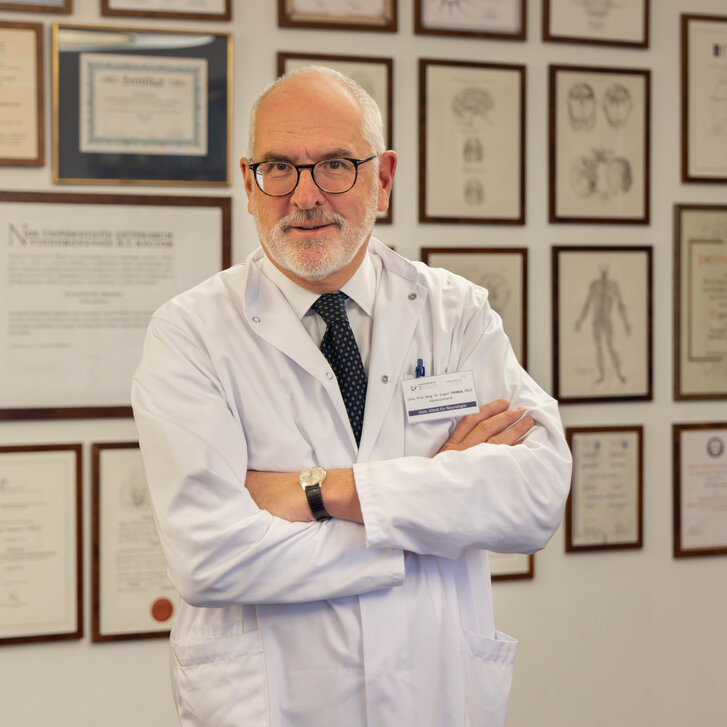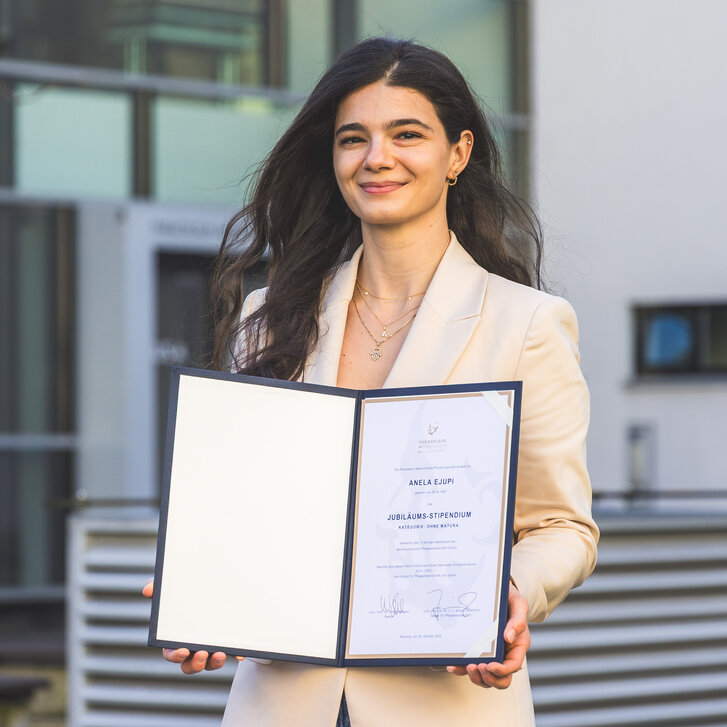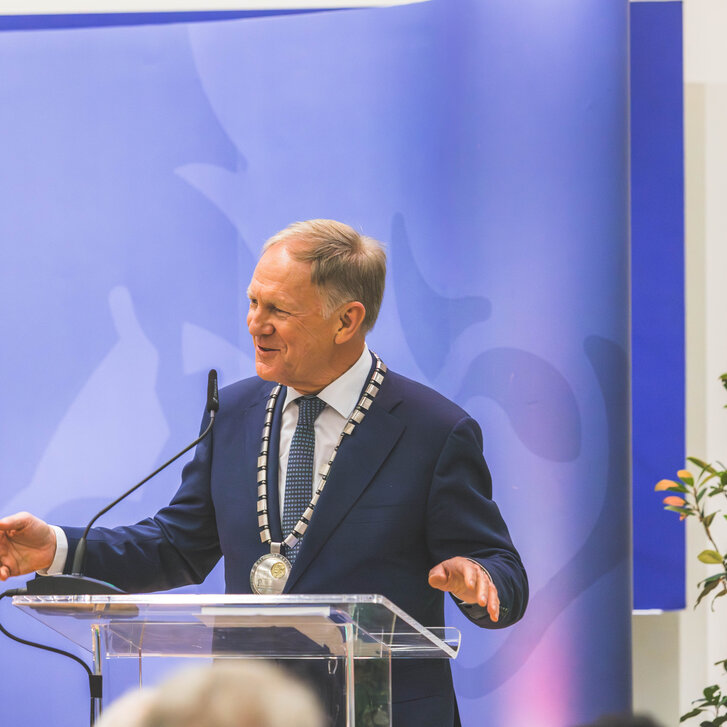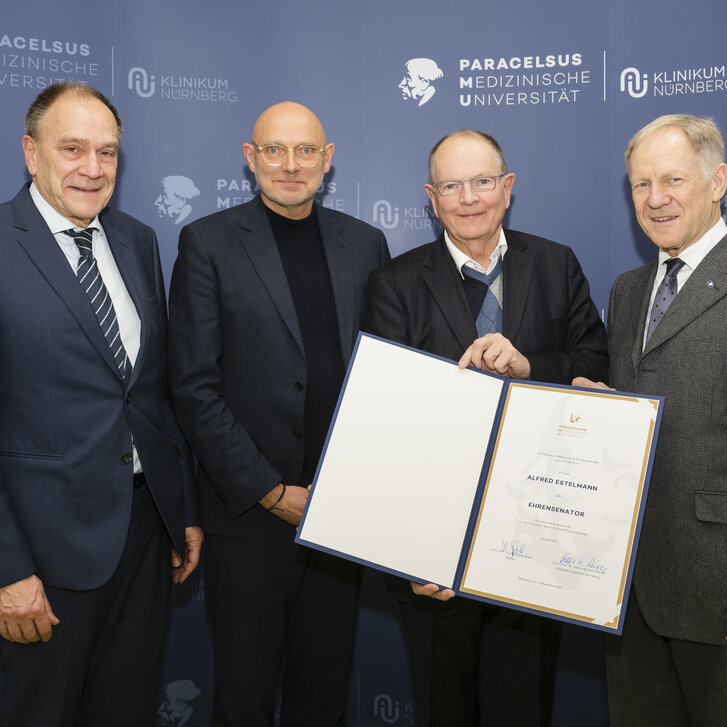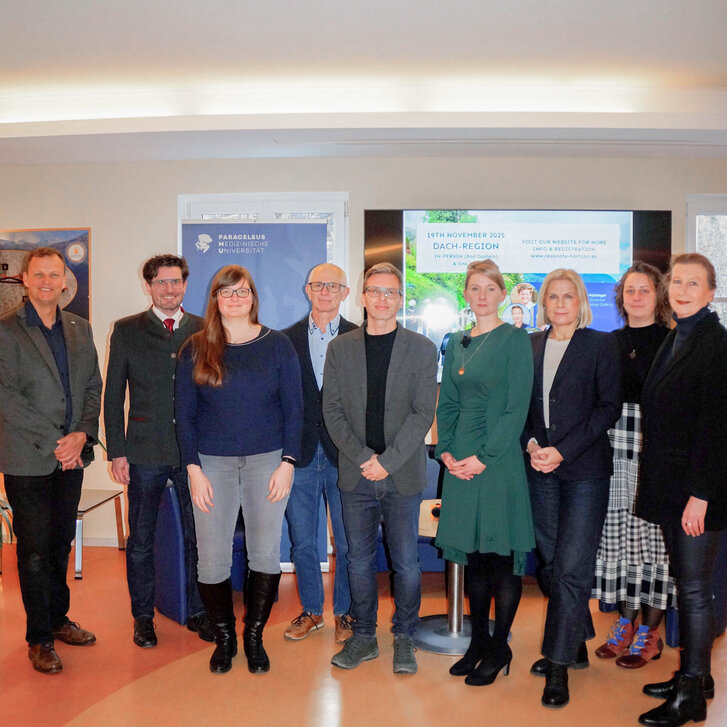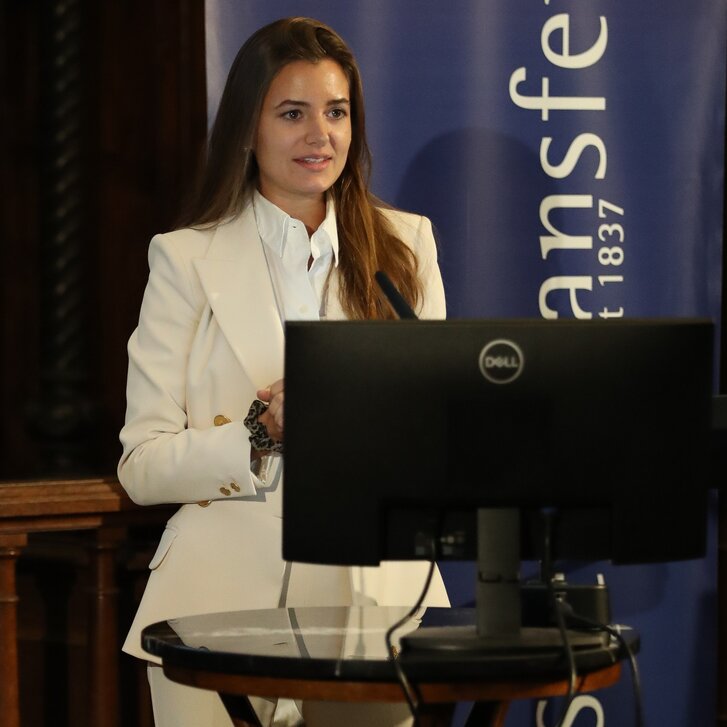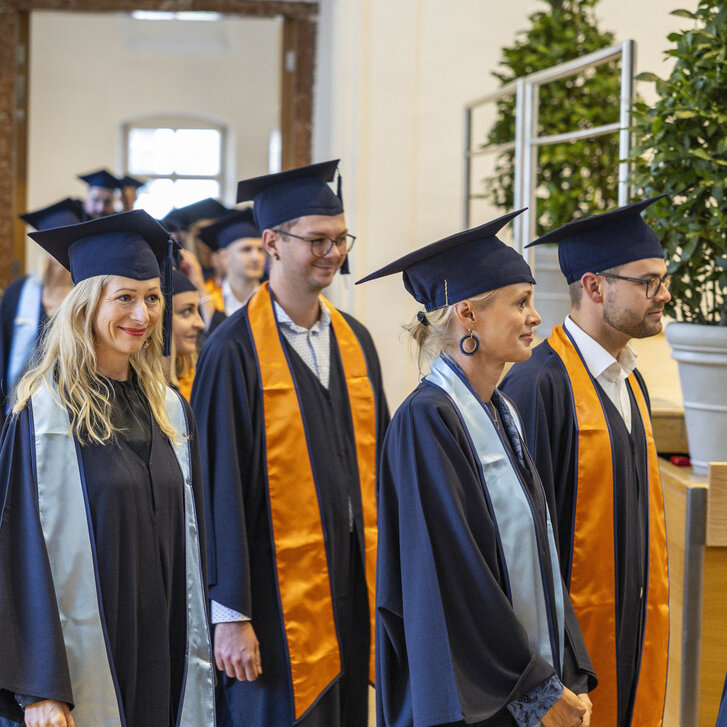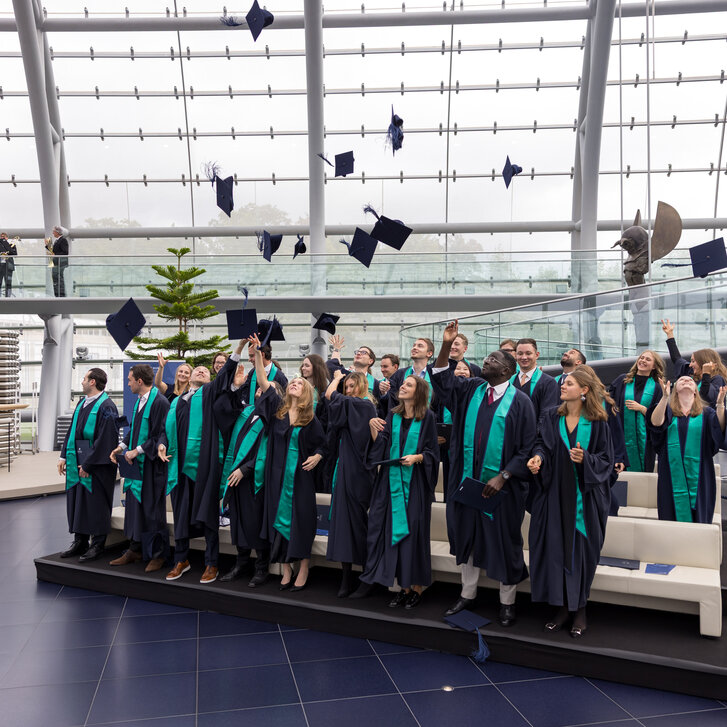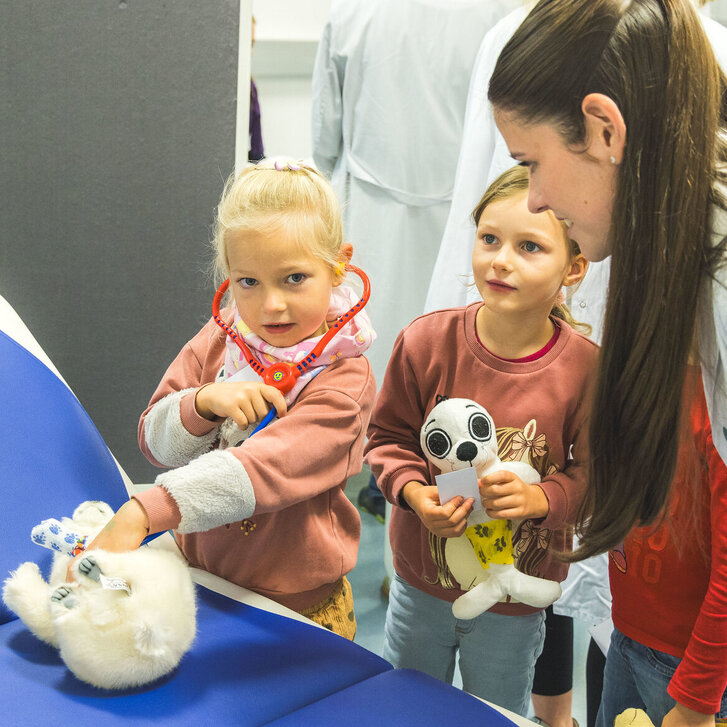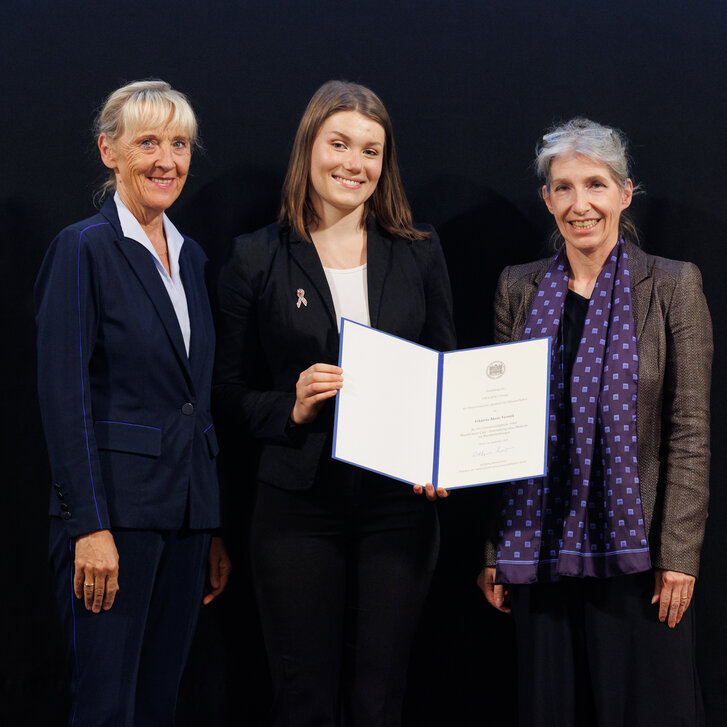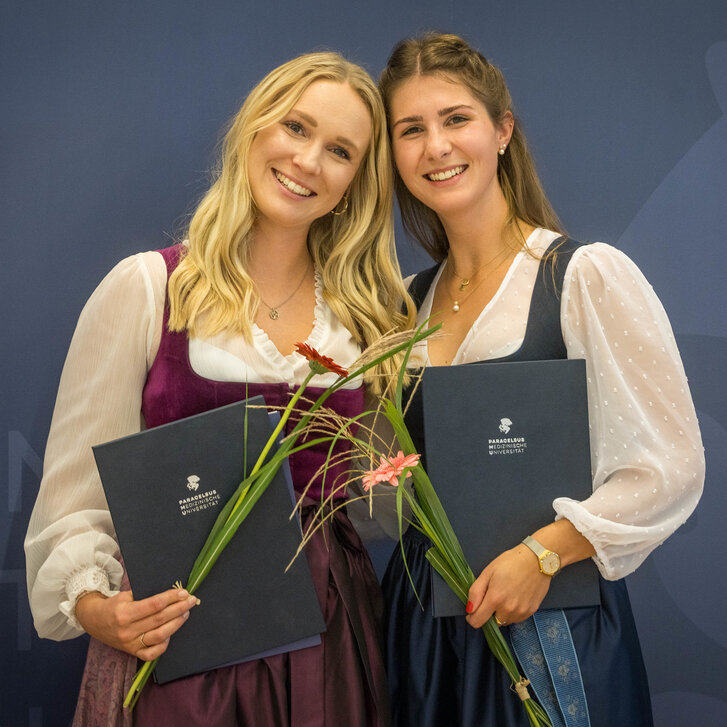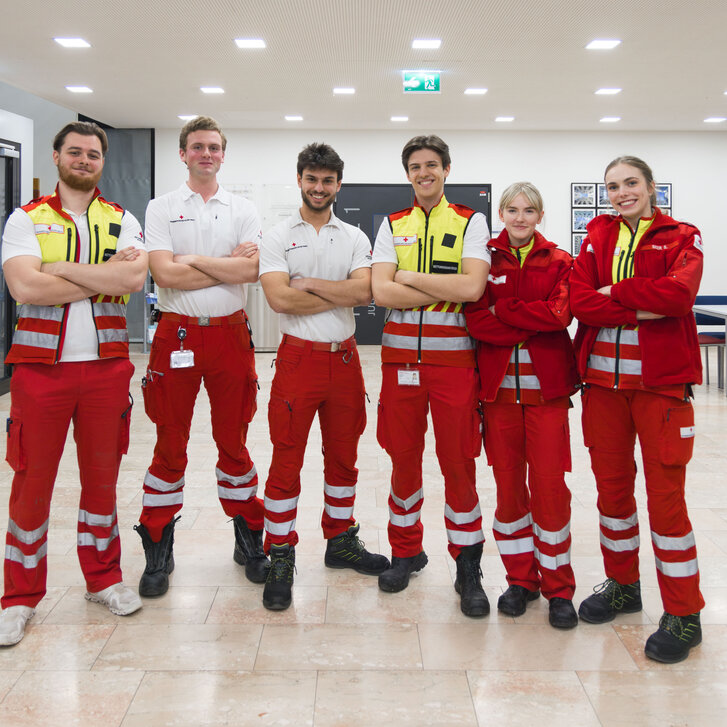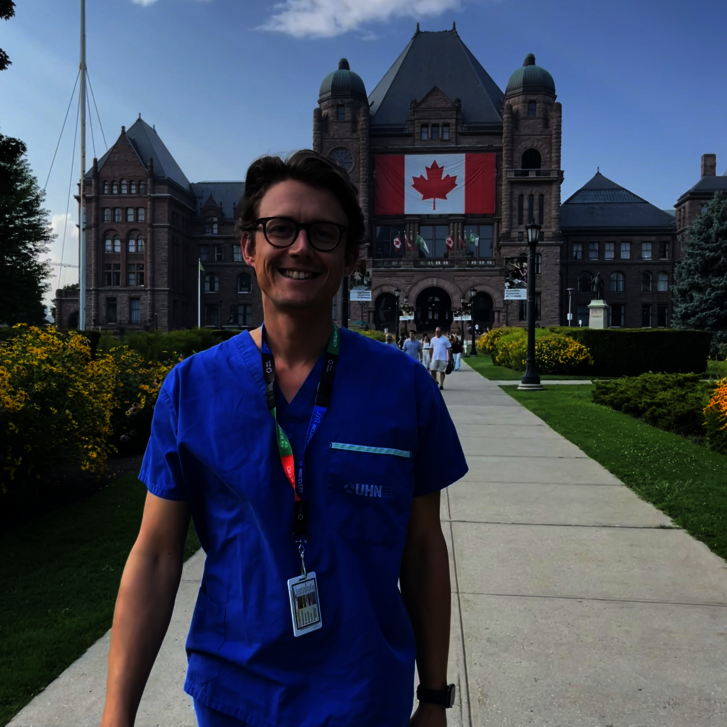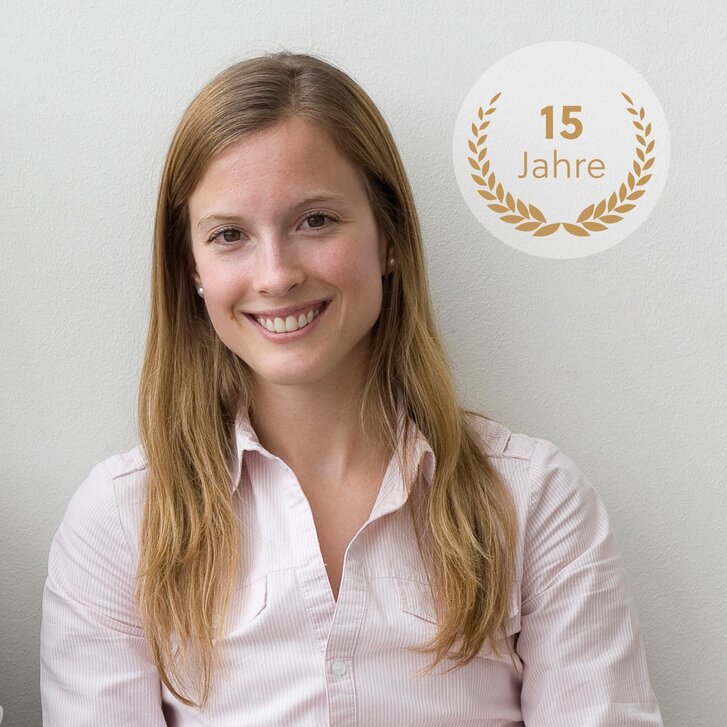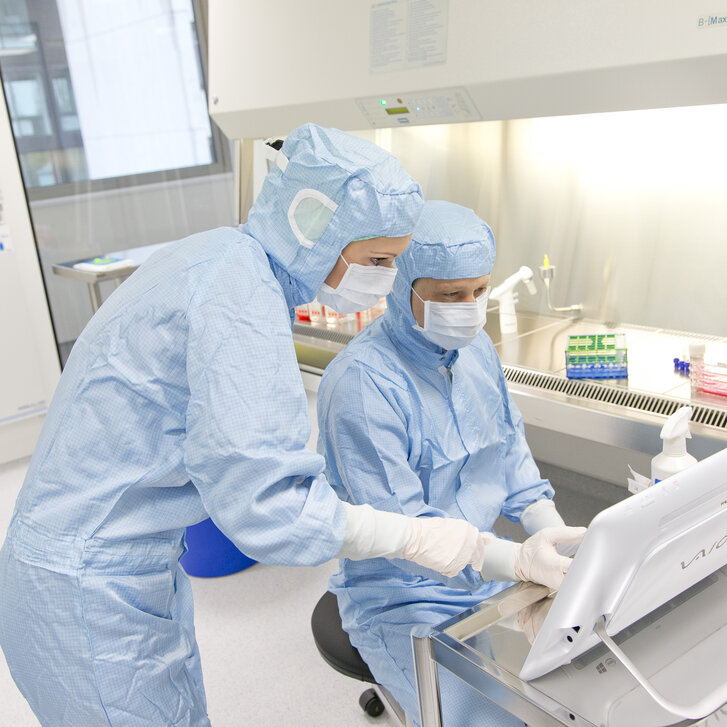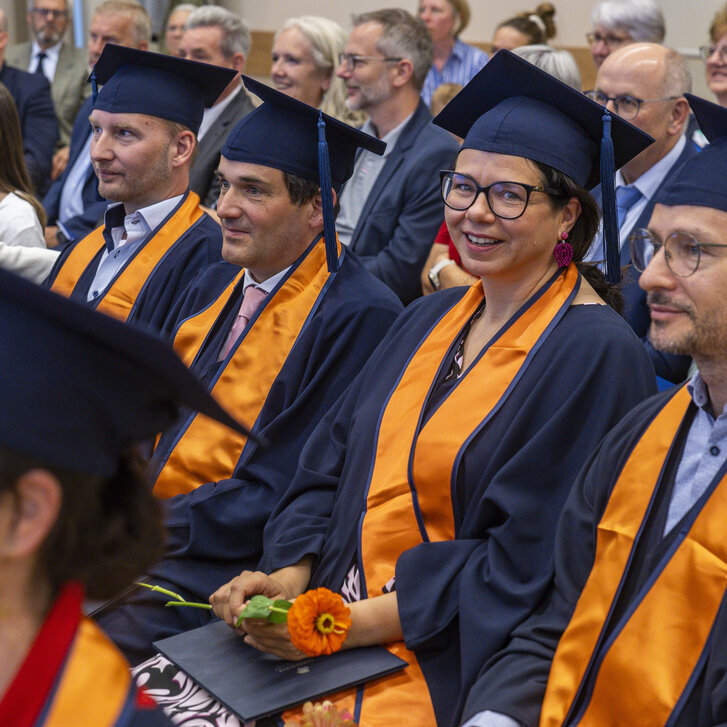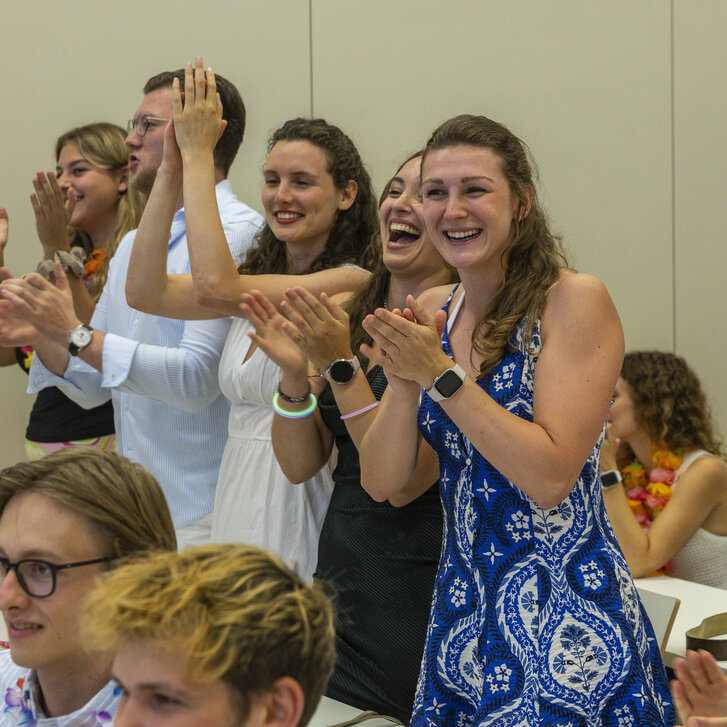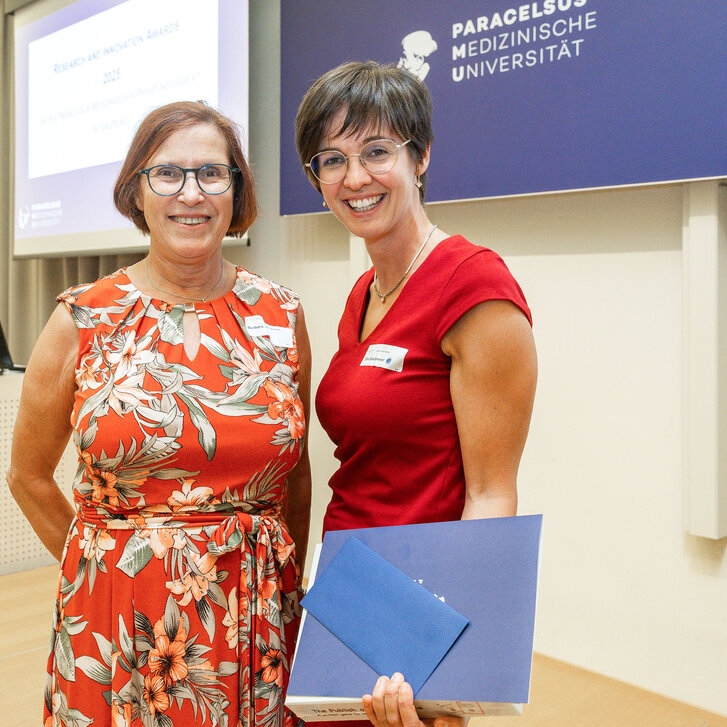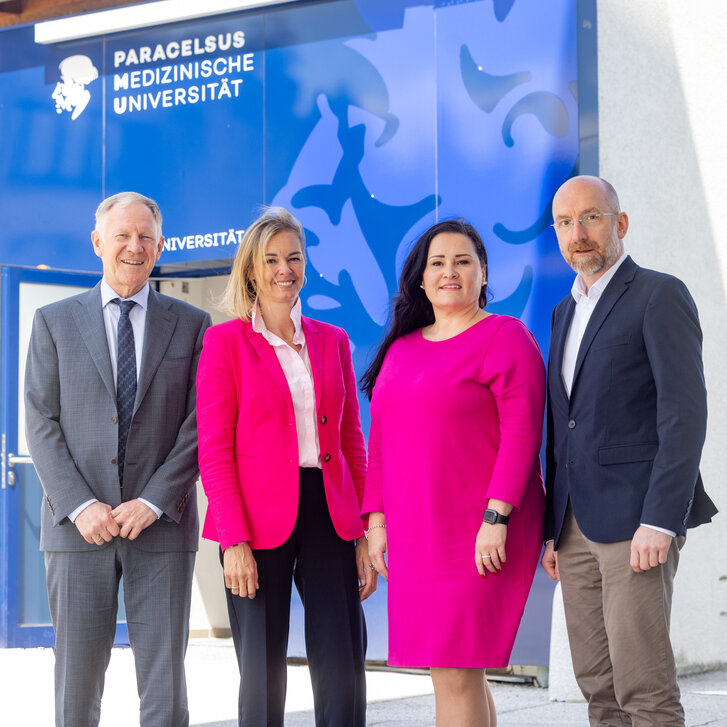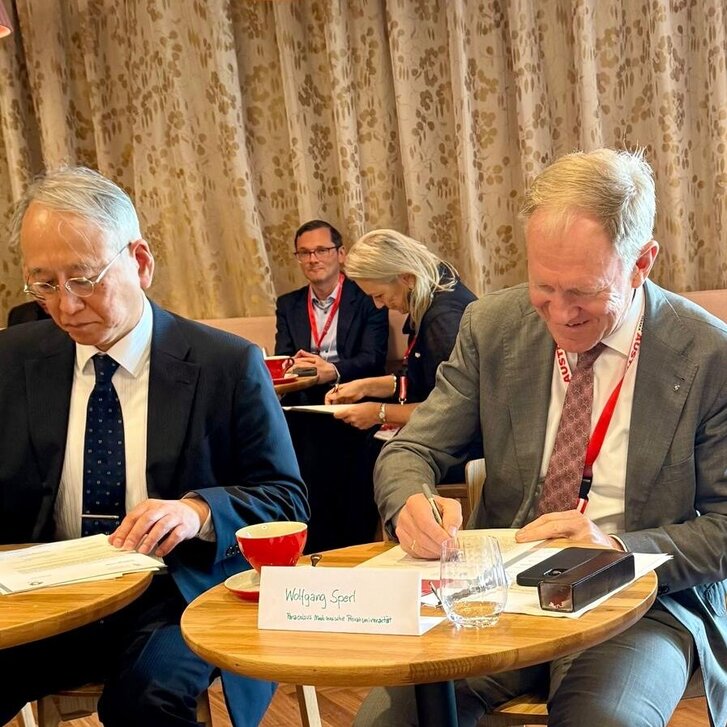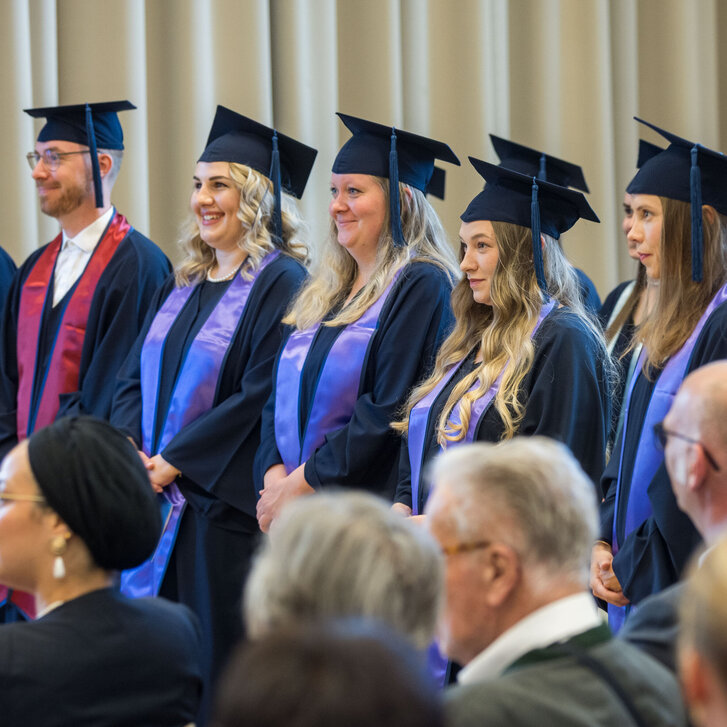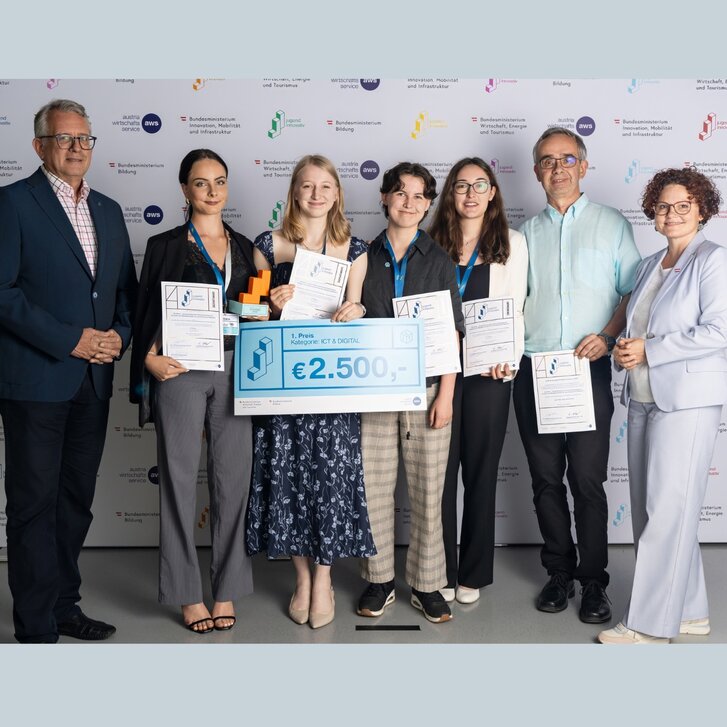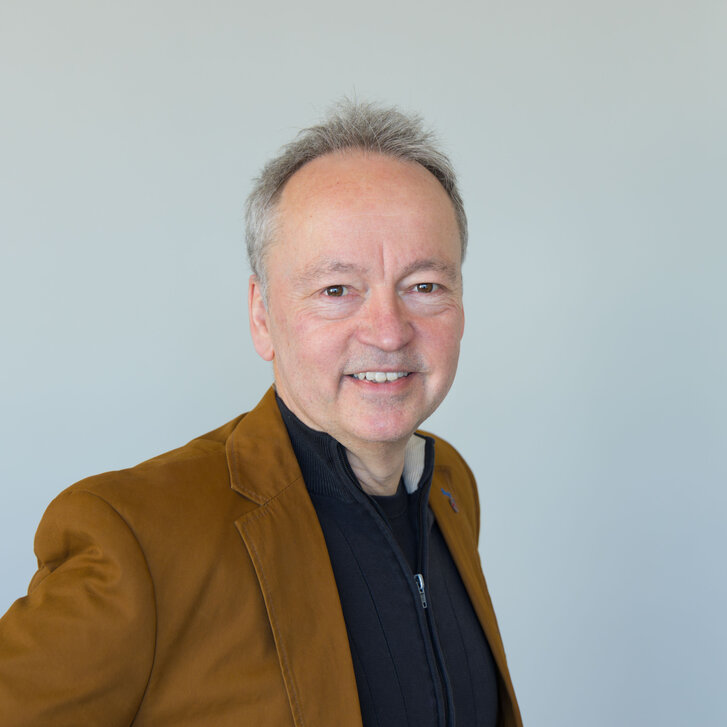
Curriculum Development in Human Medicine: An Interview with Module Coordinator Dr. Thomas Caspari

The development and continuous improvement of a curriculum is a highly complex and time-consuming process. The curricula at Paracelsus Medical Private University (PMU) are distinguished by their practical relevance, modernity, and high quality standards. In this interview, we take a look behind the scenes of this work and speak with Dr. Thomas Caspari. Originally from Nuremberg, Dr. Caspari has been working at PMU for eight years after many professional years in the UK. In addition to his role as program director of the PhD in Medical Science, he also supports the continuous development of the Human Medicine program as a module coordinator. In the interview, he shares what his position entails, what inspires him in designing his courses, and what experiences he has brought from his long stay abroad.
Dr. Caspari, you are a lecturer at PMU and a module coordinator, focusing on the development of the Human Medicine program. How does one become a module coordinator?
There is no classic career path with job postings and applications. Instead, this role evolves from the lecturers themselves. Those who enjoy didactics, love sharing knowledge, and seek contact with students bring the best prerequisites. Personal initiative plays a major role.
What is your official job title?
I am the program director, a lecturer, and a module coordinator. I often say: being a module coordinator is more of a calling than a job.
What skills or qualities should someone in your position possess?
Listening and taking students seriously is crucial! It’s not about reciting chapters from a textbook, but about reaching people and engaging with them. I pay close attention to group dynamics and like to incorporate practical examples. The exciting part is that teaching is not a one-way process—you also learn from the students because you receive so much in return. The younger generation, in particular, brings fresh perspectives. New ideas often emerge from discussions, which also inspire me.
How exactly does the module system work?
I have been working with students for eight years now, specifically in biochemistry for the past six. The new bachelor’s-master’s system, which we have been implementing for three years, provides clear structures: subject areas are grouped into larger units—modules. In my module, we combine chemistry, biochemistry, and a biochemistry lab. Students complete three partial exams, which contribute to a final grade. It’s like a modular system.
What else is involved organizationally?
A variety of tasks, such as grade management, overseeing retakes, and holding office hours. The most effort is required when preparing new lectures. But that’s also an opportunity. While my lectures follow a similar structure, they are never identical—I constantly update the content and incorporate new research findings or socially relevant topics.
Where do you find inspiration for designing your teaching?
I worked as a researcher for many years and still review new academic publications every week. I also use tools like “Perplexity,” an AI-powered search engine that provides concise summaries of current studies. I recommend such tools to my students as well. It’s important to know which tools are reliable—I’m happy to share that knowledge.
You have also gained experience abroad. What influences have you brought back?
I spent almost twenty years in the UK and learned how important didactics are. Universities in Brighton and North Wales had dedicated units focused on teaching quality. There, universities are regularly evaluated by students, and lecturers are held more accountable. This has stayed with me to this day.
What does being a module coordinator mean to you?
In my role as module coordinator, it’s important to me not only to impart knowledge but also to encourage students to think, ask questions, and discover things for themselves—and to keep learning myself in the process.
Translated by Le Chat




